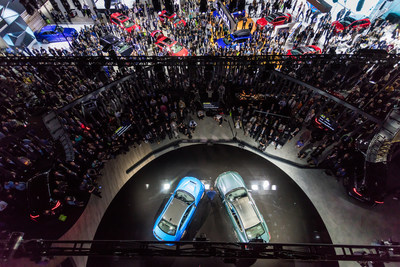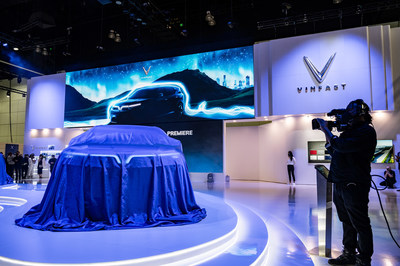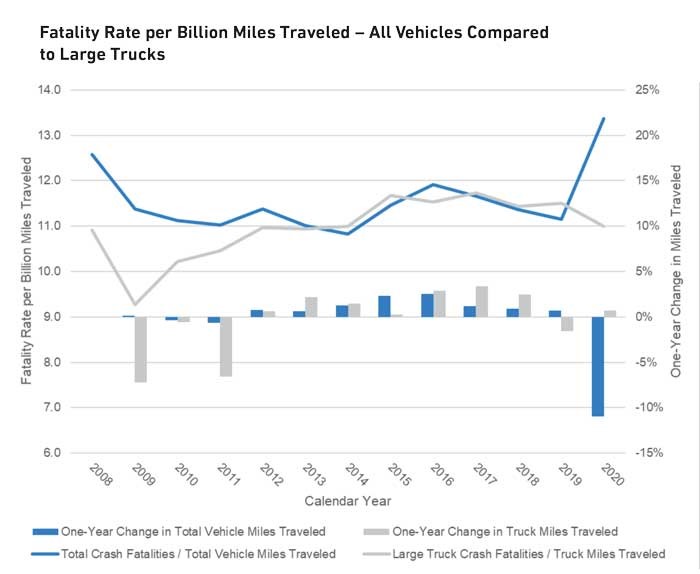Rechercher dans ce blog
Monday, October 31, 2022
Sensex, Nifty Rally On Global Cues; IT And Auto Stocks Lead Gains - Nasdaq
[unable to retrieve full-text content]
Sensex, Nifty Rally On Global Cues; IT And Auto Stocks Lead Gains Nasdaq"auto" - Google News
October 31, 2022 at 11:22AM
https://ift.tt/NsKeR0T
Sensex, Nifty Rally On Global Cues; IT And Auto Stocks Lead Gains - Nasdaq
"auto" - Google News
https://ift.tt/5Oix2Nk
Shoes Man Tutorial
Pos News Update
Meme Update
Korean Entertainment News
Japan News Update
Saturday, October 29, 2022
SNAPSHOT: Pursuing a future in auto and truck repair - Troy Record

Kendra VanValkenburgh works under the hood of a car in the Capital Region BOCES Career & Technical Education Center. The senior said she enjoys learning at BOCES and plans for a future in automotive and truck repair. VanValkenburgh is one of 96 students enrolled for the 2022-23 school year in the Automotive Trades technology program on the Albany and Schoharie campuses. (Photo provided)
"auto" - Google News
October 29, 2022 at 07:07PM
https://ift.tt/FyXxpTJ
SNAPSHOT: Pursuing a future in auto and truck repair - Troy Record
"auto" - Google News
https://ift.tt/WzjqxUG
Shoes Man Tutorial
Pos News Update
Meme Update
Korean Entertainment News
Japan News Update
Auto prices creep down from inflated highs - Finance and Commerce
The prices of new and used vehicles in the United States have begun inching down from their record highs as more vehicles become available.
Enter your user name and password in the fields above to gain access to the subscriber content on this site.
Your subscription includes one set of login credentials for your exclusive use. Security features have been integrated on this site: If someone signs in with your credentials while you are logged in, the site will automatically close your ongoing login and you will lose access at that time. To inquire about group subscriptions for your organization, contact Shaun Witt.
If you feel your login credentials are being used by a second party, contact customer service at 877-615-9536 for assistance in changing your password.Already a paid subscriber but not registered for online access yet? For instructions on how to get premium web access, click here.
"auto" - Google News
October 29, 2022 at 02:01AM
https://ift.tt/TMuoUfQ
Auto prices creep down from inflated highs - Finance and Commerce
"auto" - Google News
https://ift.tt/WzjqxUG
Shoes Man Tutorial
Pos News Update
Meme Update
Korean Entertainment News
Japan News Update
Friday, October 28, 2022
Former Owner & CFO Of Auto Masters Indicted In Multi-Million Dollar Bank Fraud Scheme - Department of Justice

NASHVILLE – A 21-count indictment, unsealed today, charges the former owner and the former Chief Financial Officer of Auto Masters with conspiracy to commit bank fraud and other charges related to a multi-million-dollar scheme to defraud financial institutions, announced U.S. Attorney Mark H. Wildasin for the Middle District of Tennessee.
Mahan (Mark) Janbakhsh, 47, of Brentwood, Tennessee, and Steven L. Piper, 51, of Joelton, Tennessee, were indicted on Monday and arrested earlier today by FBI agents. Both will appear before a U.S. Magistrate Judge in Nashville later today.
The indictment charges Janbakhsh and Piper with conspiring to defraud Capital One and First Tennessee Bank (now First Horizon); five counts of defrauding these financial institutions; five counts of making false statements and over-valuing property and securities for the purpose of influencing these financial institutions; and three counts of making false representations during official proceedings. Other counts in the indictment charge both defendants with making false statements under oath. Additionally, the indictment charges Janbakhsh with witness tampering and charges Piper with three counts of filing false tax returns.
According to the indictment, Janbakhsh was the majority owner and CEO of America’s United Financial, LLC, and Affiliates, a business that was made up of nine used car dealerships and six related finance companies located in and around Nashville, Tennessee (collectively referred to as Auto Masters). Additionally, Janbakhsh owned other automobile, radio, and real estate related businesses, including Plaza Mariachi, which is an entertainment center and market in South Nashville.
Piper was a Certified Public Accountant and was the Chief Financial Officer of all the Auto Masters entities and prepared the tax returns for Auto Masters and for Janbakhsh personally.
The dealerships sold used cars and provided car loans in connection with those sales. The car loans were then sold to the related Auto Masters finance companies which operated using a line of credit with Capital One and First Tennessee Bank. In order to continue operating with the line of credit, Auto Masters was required to submit monthly borrowing base certificates to report the total value of eligible loans, which formed the collateral for the line of credit.
On October 9, 2017, Piper submitted a borrowing base certificate to Capital One for the period ending September 31, 2017, disclosing that Auto Masters had overstated its collateral by over $33 million. In the certificate, Auto Masters admitted that it had drawn over $26.4 million more than it was permitted to draw under the terms of the line of credit. The following week, Auto Masters filed for bankruptcy. During the bankruptcy proceedings, Capital One sought to depose the loan portfolio and collection manager for Auto Masters, but were unable to do so, as he had left the jurisdiction. The bankruptcy receiver determined that as of July 31, 2017, Auto Masters had overstated its collateral by nearly $37 million, and had drawn over $24 million more than Auto Masters was permitted to draw.
The indictment alleges that Janbakhsh, Piper, and others, manipulated the financial database of Auto Masters and caused false reports to be sent to Capital One to make it appear as though there was more collateral than there actually was. The database manipulation included making false entries to make delinquent loans appear current, and creating false loans based on duplicate Vehicle Identification Numbers, vehicles that had been repossessed, vehicles that had been paid off, and using information from customers who had applied for loans but had been rejected.
The indictment alleges that Janbakhsh and Piper falsely testified during bankruptcy proceedings that they had no knowledge of anyone reporting false information to the lenders and were not involved in the fraudulent scheme.
The indictment also alleges that Janbakhsh engaged in witness tampering with the intent to hinder the federal investigation when he gave the former Auto Masters portfolio manager a cash payment of $10,000 and promised him an additional sum of approximately $300,000 if he would leave the jurisdiction to prevent him from providing information about the fraud to federal agents.
Finally, the indictment alleges that Piper submitted false individual income tax returns for the tax years 2016, 2017, and 2019, in which he underreported his personal income.
The indictment also contains a forfeiture allegation in which the United States seeks to recover all property representing the proceeds derived from the crimes, including a money judgement.
If convicted, Janbakhsh and Piper face up to 30 years in prison and a $1 million fine.
This case was investigated by the FBI and IRS-Criminal Investigation based upon a referral for investigation and prosecution by the U.S. Trustee’s Office. Assistant U.S. Attorneys Kathryn W. Booth and Thomas Jaworski are prosecuting the case. Assistant U.S. Attorney J. Matthew Blackburn is handling the forfeiture.
All defendants are presumed innocent until proven guilty in a court of law.
# # # # #
"auto" - Google News
October 27, 2022 at 10:41PM
https://ift.tt/aouWRF7
Former Owner & CFO Of Auto Masters Indicted In Multi-Million Dollar Bank Fraud Scheme - Department of Justice
"auto" - Google News
https://ift.tt/QxNieqI
Shoes Man Tutorial
Pos News Update
Meme Update
Korean Entertainment News
Japan News Update
Thursday, October 27, 2022
Fix Auto USA Announces Top Performers - BodyShop Business
Fix Auto USA announced the top performers in the Fix Auto family during the final day of the Fix Auto USA conference, naming three store owners and their teams with the honors.
Click Here to Read More
Advertisement
Vatche Derderian, a second-generation owner who has multiple Fix Auto USA locations in the Los Angeles-area, received the Arrow Award for his long-term leadership and commitment to the Fix Auto USA family. He is a founding franchisee and an engaged market leader on the Fix Auto USA advisory board. Derderian has demonstrated his ability to forge a path forward, bringing his team along with him — no matter the challenge that may lie ahead.
“Like the head of an arrow, Vatche Derderian is a natural mentor and has consistently demonstrated his leadership abilities within his stores and amongst the network,” said Sabrina Thring, collision chief operating officer, Driven Brands. “He is fully committed to the Fix Auto USA vision and not only applies it to his business but encourages and promotes the vision to others. Congratulations to Vatche and his team for this prestigious award.”
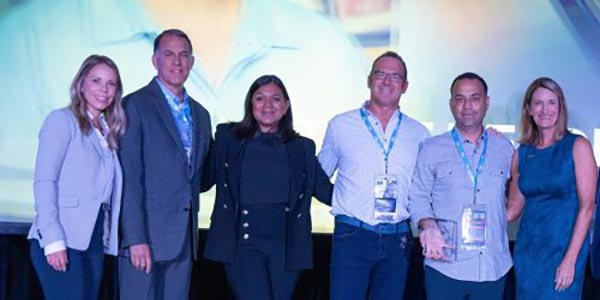
Derderian shared his keys to success as part of the Fix Auto USA family.
“I saw my father working so hard as an independent owner, and I knew there had to be a better solution,” said Derderian. “Being in the body shop business as an independent owner was like just having a book, and then joining the Fix franchise system was like having access to the internet. I am always looking to try new tactics to improve our operational process and I always want to learn and grow from my peers around the U.S. I also take classes outside of our industry to learn more about running a business. This has taught me to always look at the numbers and pay attention to the backend of the business. Now, I balance my books every day.”
Advertisement
The Community Award was presented to Gary Leger, a multi-store owner with four Fix Auto USA locations in the greater San Diego area. He joined in 2015 and has continued to grow both independently and in partnership with other franchisees. Known for his passion for giving back, he focuses on the military, first responders and kids.
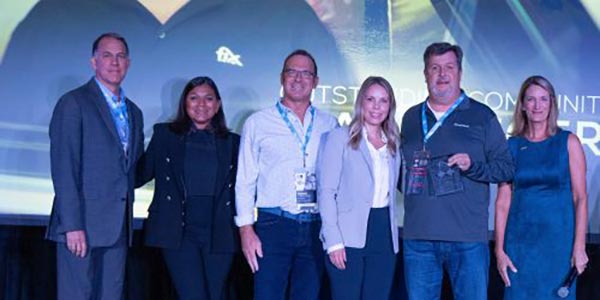
“I’ve been in this industry since I was 14 doing odd jobs, then became an estimator and worked my way up from there,” said Leger. “I’m always looking to get involved with the community. I’ve completed seven NABC Recycled Rides and love to get my team involved. We have gotten involved with the local YMCA to rebuild one of their vans. I’ve also gotten involved with a local school that has an auto body program, helping them build the curriculum, teaching classes and hiring interns from the school.”
Added Thring, “Gary Leger is a role model for us all. He is a founding member of the San Diego Army Advisory Council (SDAAC) and the U.S Firefighters Association, works with PaYS, and works with local schools giving back to their auto body repair programs and training students. We are honored to give the Community Award to Gary Leger.”
Advertisement
The top Length of Rental (LOR) Award presented by Enterprise was given to Fix Auto Lake Forest and owner Bryan Wendt who, with Richard Fish, also operates Fix Auto Kearny Mesa. The LOR award recognizes that the speed of a repair can make or break a customer’s repair experience. The LOR award winner is selected on the shortest average rental car length, based on Enterprise LOR data.
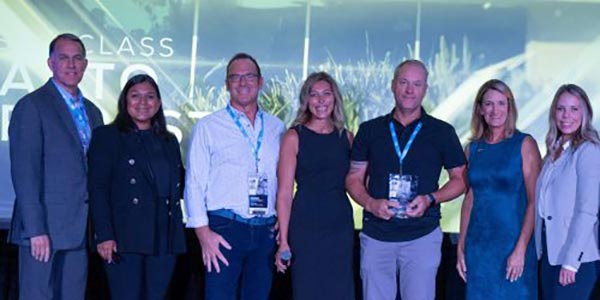
Wendt started out in the automotive industry as a mechanic and has always been focused on the repair process.
“I’ve seen big changes in the technology of the vehicle,” said Wendt. “My team and I are always working to keep up with the technology to make sure everything is done properly to protect our customers. Scheduling is key to having the shortest LOR possible, and the scheduling process ensures we are looking at every step required in the repair process. We do pre-orders on cars based on the initial estimates, source the parts before we take in the vehicle — if possible, pre-scan the vehicle and create the detailed repair plan. We also have visual cues within our team where members wear different colored hats to keep our team focused on moving cars efficiently through the repair process.”
Advertisement
Added Thring, “We’re proud to present the Enterprise LOR Award to Bryan Wendt and his team. This exceptional speed would not be made possible without a commitment to standardized processes, and we are happy to celebrate their operational excellence.”
More than 300 Fix Auto USA franchise partners, vendors, corporate team members and collision industry leaders gathered at the Loews Coronado Bay Resort near San Diego for the 2022 Fix Auto USA conference. It was the first time in two years that the Fix Auto USA family had gathered.
For more information, visit FixAutoUSA.com.
"auto" - Google News
October 27, 2022 at 10:45PM
https://ift.tt/bDcQpu5
Fix Auto USA Announces Top Performers - BodyShop Business
"auto" - Google News
https://ift.tt/C52ijeT
Shoes Man Tutorial
Pos News Update
Meme Update
Korean Entertainment News
Japan News Update
2022 Los Angeles Auto Show Announces Preliminary List of Confirmed Global and North American Vehicle Debuts - PR Newswire
AutoMobility LA Annual Media Preview on November 17 To Feature debuts By Subaru, Hyundai, Fiat, Kia, Genesis, VinFast and More
LOS ANGELES , Oct. 27, 2022 /PRNewswire/ -- Los Angeles Auto Show® today announces plans for global and North America vehicle debuts at AutoMobility LA® (AMLA), its annual gathering for both media and industry professionals on November 17. Showcasing automotive industry innovation and growth with an emphasis on electrification as its central pillar, the day will be highlighted by a selection of significant debuts.
AutoMobility LA® will feature a packed schedule of announcements, led by a global reveal from Subaru, as well as North American debuts from Hyundai, Fiat, Kia, Genesis and VinFast. The day will also include a first-ever public viewing from Charge Cars, announcement of finalists for the coveted North American Car and Truck of the Year (NATCOY) honors and the Hispanic Motor Press awards.
In the days leading to the November 17 AMLA media gathering, Porsche, Toyota and Volkswagen have chosen Los Angeles for debuts of significant vehicles encompassing electric, hybrid and traditional gas-fueled models.
Held at the Los Angeles Convention Center, the 115th anniversary Los Angeles Auto Show will run from November 18 to 27. The show will be highlighted by displays from Alfa Romeo, Aston Martin, Charge Cars, Chevrolet, Chrysler, Dodge, ElectraMeccanica, Fiat, Ford, Genesis, GMC, Honda, Hummer EV, Hyundai, INDI EV, Jaguar, Jeep, Kia, Land Rover, Lexus, Lincoln, Mazda, Nissan, Porsche, Ram, Subaru, Toyota, VinFast, Volkswagen and Volvo.
"As electrification continues to gain prominence among car-buyers, it will again be a prominent factor in the vehicles that will be unveiled AutoMobility LA as well as those displayed throughout this year's show," said Los Angeles Auto Show President Terri Toennies. "From technological advances to style and culture, our show will reflect the worldwide influence of California innovation and style."
Journalists from over 30 countries are confirmed to be in attendance covering the latest automaker news and reporting from the show's Media Center sponsored by Alliance For Automotive Innovation.
The Los Angeles Auto Show will be cashless; tickets can be purchased online at laautoshow.com/tickets or at on-site ticketing kiosks with a credit or bank card. Individual tickets, family and VIP packages include:
- Any Day General Admission Tickets: Adult $22, Senior $12, Child $6
- VIP Early Entry on Saturdays and Sundays: Adult $45, Senior $24, Child $12
- VIP Guided Tours on Select Weekdays and Weekends: Adult $100, Child $45
- Wednesday/Thursday Thanksgiving Family Four-Packs: $65
Special programs and ticketing options for military personnel and first responders are also available. For groups of 20 or more, please contact the Los Angeles Auto Show directly for group ticket pricing.
For additional information, please visit laautoshow.com.
About the Los Angeles Auto Show (LA Auto Show®)
Founded in 1907, the Los Angeles Auto Show (LA Auto Show®) is widely recognized as one of the most influential shows globally. Reflective of its location, the show celebrates the love affair Angelenos have with their cars and offers a global platform to industry technology and innovation, synonymous with California.
The show runs for 10 full days over the Thanksgiving period and is a must-attend destination for many industry influencers, car enthusiasts and families wanting to enjoy a day out over the holiday season. Held annually at the Los Angeles Convention Center, the LA Auto Show contributes several hundred million dollars to the local economy, stimulates the local job market, and is the number one revenue generator for the LA Convention Center.
Taking place on November 17, AutoMobility LA media and industry day will include a range of groundbreaking industry announcements and reveals. Doors open to the public November 18-27. LA Auto Show is owned and operated by ANSA Productions. To receive the latest show news and information, follow the LA Auto Show on Twitter, Facebook, Instagram or LinkedIn and sign up for alerts at laautoshow.com.
For press inquiries, email Jeff Perlman at [email protected].
SOURCE Los Angeles Auto Show

"auto" - Google News
October 27, 2022 at 08:00PM
https://ift.tt/25ZXleW
2022 Los Angeles Auto Show Announces Preliminary List of Confirmed Global and North American Vehicle Debuts - PR Newswire
"auto" - Google News
https://ift.tt/C52ijeT
Shoes Man Tutorial
Pos News Update
Meme Update
Korean Entertainment News
Japan News Update
Wednesday, October 26, 2022
Gunderson Multi-Max auto racks from ScaleTrains - TRAINS Magazine
Gunderson Multi-Max auto racks
Scale: HO (1:87.1)
Price: $46.99
Era: 2015 to present (varies depending on scheme)
Manufacturer: ScaleTrains, 4901 Old Tasso Rd. NE, Cleveland, TN 37312; 844-987-2467; scaletrains.com
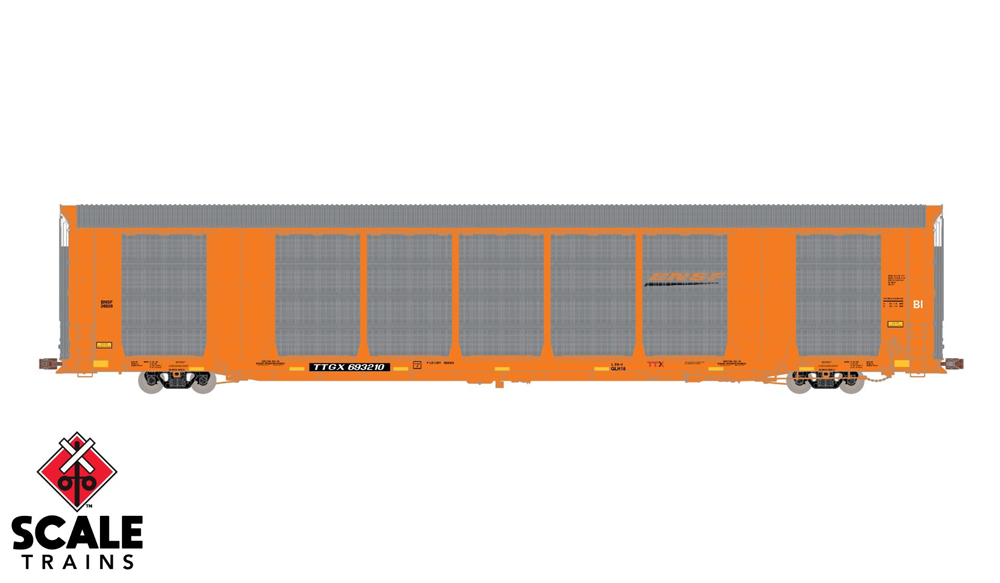
Gunderson Multi-Max auto racks feature:
- New road numbers
- Late body type
- Late end doors with “zig-zag” angle panels
- Molded corrugated side panels
- American Steel Foundries low deck swing-motion trucks
- Detail kit (SXT81270) available separately with door rods, metal grab irons, uncoupling levers, trainline hoses, and more
- Minimum radius, 24”; recommended radius, 26”
Release date: June 2023
Paint schemes: BNSF Ry. (orange, six road numbers), Canadian National (yellow with white “wet noodle” herald), Canadian Pacific (yellow with beaver herald), CSX (yellow with “boxcar” herald), Kansas City Southern (white), Norfolk Southern (yellow with Thoroughbred herald and TOCX reporting marks on flatcar), and Union Pacific (yellow with “Building America” slogan, six numbers). All flatcars feature TTGX marks unless noted. Three numbers per scheme unless noted.
News & Products is a regular feature of Trains.com for model railroad operators and builders to get the latest information about locomotives, freight cars, passenger cars, tools, track, and more. Model railroad product news may include HO, N, O, S, and Z scales. Product release dates and prices will vary according to each manufacturer.
If you are a manufacturer and have new product releases, please email Senior Editor Cody Grivno at cgrivno@kalmbach.com for more information.
"auto" - Google News
October 26, 2022 at 09:06PM
https://ift.tt/AfYroCN
Gunderson Multi-Max auto racks from ScaleTrains - TRAINS Magazine
"auto" - Google News
https://ift.tt/ZWhA4O8
Shoes Man Tutorial
Pos News Update
Meme Update
Korean Entertainment News
Japan News Update
Georgica Auto Holdings welcomes Franchise Equity Partners as minority shareholder - PR Newswire
- Georgica Auto Holdings operates 23 automotive retail franchises across NY, NJ, and PA
- Franchise Equity Partners makes $70 million capital investment in Georgica Auto Holdings
- Agreement gives Georgica Auto Holdings access to FEP's deep automotive and financial expertise
- Capital investment supports Georgica Auto Holdings strategic growth plan
NEW YORK, Oct. 26, 2022 /PRNewswire/ -- Georgica Auto Holdings, an automotive retail group with 23 franchises in the northeast, welcomed Franchise Equity Partners (FEP) as a minority shareholder following a $70 million capital investment. Georgica Auto Holdings is led by its CEO, Jon Sobel, an entrepreneur with over a decade of experience in the automotive retail industry. Georgica's dealers account for over 20,000 new and used vehicle sales annually, totaling more than $1 billion in revenue.
"Bringing Franchise Equity Partners in as a minority shareholder positions us to rapidly and thoughtfully grow our business, whilst retaining my Land Rover store in Manhattan and much of the real estate, outside of this partnership." said Jon Sobel, CEO of Georgica Auto Holdings. "I've known FEP's co-founders, Scott Romanoff and Mike Esposito, for more than 25 years and their unique model gives us the best of all worlds—access to passive, permanent capital and deep automotive and financial expertise while letting us retain our flexibility and autonomy as an independent business.
Celebrating its first year in operation, Franchise Equity Partners, an independently operated portfolio company of certain funds and accounts managed by HPS Investment Partners, supplies large scale, best-in-class franchise owners with access to levels of capital and in-house financial expertise that are customarily reserved for public companies, while allowing these businesses to retain full control of their operations.
"It's a thrill to join forces with Georgica Auto Holdings as we celebrate our first year in business," said Don Reese, CEO and President of FEP Auto Holdings. "We believe that Jon Sobel is an ideal partner as we expand our investments in the northeast, and we look forward to helping Georgica Auto Holdings unlock its full growth potential."
"This is an exciting time of significant change for the automotive retail industry as the dealer model continues to evolve and consumer demand for electric vehicles accelerates," said Mark LaNeve, Chairman of FEP Auto Holdings, "we believe scale will be critical and see tremendous opportunity with this investment in Georgica Auto Holdings as well as future investments to help dealers achieve growth and scale their footprint and operations".
Franchise Equity Partners' differentiated approach allows them to present a unique offering to prospective, growth-oriented partners in the automotive retail industry: extensive corporate finance experience combined with passive, permanent capital, and deep auto-sector leadership expertise. FEP Auto Holdings Chairman Mark LaNeve calls upon decades of automaker C-suite experience in North America, while FEP Auto Holdings President Don Reese brings an equally deep background in dealer management, operations and financing.
Laurence M. Smith of Chiesa Shahinian & Giantomasi PC represented Georgica Auto Holdings and Stephen J. Dietrich of Holland & Knight represented Franchise Equity Partners in the transaction.
About Franchise Equity Partners
Franchise Equity Partners is a private investment firm specializing in providing capital to franchise businesses and their owners. Its differentiated approach combines extensive corporate finance and operating experience with passive, permanent capital to enable growth, ownership simplification, succession and estate planning, among other strategic business opportunities. FEP invests across five industry verticals: automotive dealers, restaurants, beverage distribution, heavy equipment dealers and other consumer and business services. FEP has an initial target portfolio size of $1 billion and is an independently operated portfolio company of certain funds and accounts managed by HPS Investment Partners, a leading global-alternative investment firm, with over $92 billion of assets under management.
To learn more about Franchise Equity Partners, please visit http://www.fep-us.com/www.FEP-US.com or follow the firm on LinkedIn.
About Georgica Auto Holdings
Georgica Auto Holdings operates 23 automotive retail franchises across New York, New Jersey, and Pennsylvania. With dealerships representing an iconic roster of mass-market and luxury automotive brands, Georgica Automotive Holdings generates over $1 billion in annual sales from over 20,000 new- and used-vehicle transactions. Dealerships representing a constellation of brands from the Volkswagen Group, Porsche Cars North America, General Motors, BMW Group, Jaguar Land Rover, Stellantis, Toyota USA, American Honda, and Subaru of America.
To learn more about Georgica Auto Holdings, please visit www.georgicaautoholdings.com.
Media Contact:
Morgan Theys
[email protected]
SOURCE Franchise Equity Partners

"auto" - Google News
October 26, 2022 at 08:00PM
https://ift.tt/brMLp6y
Georgica Auto Holdings welcomes Franchise Equity Partners as minority shareholder - PR Newswire
"auto" - Google News
https://ift.tt/ZWhA4O8
Shoes Man Tutorial
Pos News Update
Meme Update
Korean Entertainment News
Japan News Update
Tuesday, October 25, 2022
AUTO RACING: Last race for NASCAR drivers to make Final Four - FOX Sports
All Times Eastern
NASCAR CUP SERIES
Xfinity 500
Site: Martinsville, Virginia.
Schedule: Saturday, practice, noon, and qualifying, 12:45 p.m.; Sunday, race, 2 p.m. (NBC).
Track: Martinsville Speedway.
Race distance: 500 laps, 263 miles.
Last year: Alex Bowman won after starting 13th.
Last race: Kyle Larson led 199 of 267 laps at Homestead-Miami and won for the third time this season.
Fast facts: Joey Logano remains the only driver to have clinched a spot in the four-driver championship finale, leaving seven others to battle for the final three spots on NASCAR's oldest and shortest track. ... Among the remaining playoff contenders, Denny Hamlin has won five times on the 0.526-mile paper clip-shaped track, but not since March of 2015. Logano, Chase Elliott and William Byron have each won once, with Byron's coming earlier this year. ... Logano leads Ross Chastain by five points, Elliott by 13 and Byron by 19. Eighth-place Chase Briscoe is 63 points off the lead. ... Ryan Blaney remains the only winless driver in contention for the championship;
Next race: Nov. 6, Avondale, Arizona.
Online: http://www.nascar.com
NASCAR XFINITY SERIES
Dead On Tools 250
Site: Martinsville, Virginia.
Schedule: Friday, practice, 4 p.m., and qualifying, 4:35 p.m.; Saturday, race, 3 p.m. (NBC).
Track: Martinsville Speedway.
Race distance: 250 laps, 131.5 miles.
Last year: Noah Gragson won after starting ninth.
Last race: Gragson gave JR Motorsports two drivers in the Xfinity Series championship finale with his series-best eighth win of the season Saturday at Homestead-Miami.
Fast facts: Gragson led 127 of the 200 laps, then held off Ty Gibbs and AJ Allmendinger on a late restart for his 13th career victory. ... He joined fellow JRM driver Josh Berry, who won at Las Vegas, as drivers locked into the championship finale, with teammates Justin Allgaier and Sam Mayer also still in contention. ... Gragson's points lead climbed to 31 over Ty Gibbs and 56 over Allmendinger, the regular season champ. ... Brandon Jones is last among the eight drivers still vying for a title shot, 94 points off the lead.
Next race: Nov. 5, Avondale, Arizona.
Online: http://www.nascar.com
NASCAR TRUCK SERIES
Last race: Ty Majeski led 67 of the 134 laps and stamped himself as the driver to beat with a runaway victory at Homestead-Miami. Chandler Smith, Zane Smith and defending series champion Ben Rhodes earned the other three spots in the championship final.
Next race: Nov. 4, Avondale, Arizona.
Online: http://www.nascar.com
FORMULA ONE
Mexican Grand Prix
Site: Mexico City, Mexico.
Schedule: Friday, practice, 2 p.m. and 5 p.m.; Saturday, practice, 1 p.m., and qualifying, 4 p.m.; Sunday, race, 4 p.m. (ESPN).
Track: Autódromo Hermanos Rodríguez.
Race distance: 71 laps, 189.738 miles.
Last year: Max Verstappen won after starting third.
Last event: Verstappen, already the season champion for the second year in a row, passed Lewis Hamilton with six laps to go and won in Texas, his record-tying 13th victory of the season.
Fast facts: Verstappen tied the record shared by Michael Schumacher (2004) and Sebastian Vettel (2013) for most victories in a season and has three races remaining to break it. ... He raced in honor of Red Bull founder and team owner Dietrich Mateschitz after learning Saturday that Mateschitz had died. ... Charles Leclerc rallied from 12th at the start to finish third for Ferrari. Leclerc was second-fastest in qualifying, but drew a 10-place grid penalty after changing engines. ... Hamilton, a seven-time series champion, has three races remaining to extend to 16 his streak of seasons with at least one victory.
Next event: Nov. 13, Sao Paulo, Brazil.
Online: http://www.formula1.com
INDYCAR
Last race: Outgoing champion Alex Palou won at Laguna Seca and Will Power finished third in the season finale to beat Team Penske teammate Josef Newgarden for the season championship by 16 points. It’s the second title for Power, who also won in 2014, and the 17th for the Penske organization.
Next race: March 5, 2023, St. Petersburg, Florida.
Online: http://www.indycar.com
NHRA DRAG RACING
Last event: Justin Ashley won in Top Fuel and Ron Capps won in Funny Car in Texas.
Next event: Oct 27-30, Las Vegas.
Online: http://www.nhra.com
WORLD OF OUTLAWS
Next events: Nov. 2, 4 and 5, Concord, North Carolina.
Online: http://worldofoutlaws.com/sprintcars
___
More AP auto racing: https://apnews.com/hub/auto-racing and https://twitter.com/AP_Sports
"auto" - Google News
October 25, 2022 at 10:01PM
https://ift.tt/tz4dC2x
AUTO RACING: Last race for NASCAR drivers to make Final Four - FOX Sports
"auto" - Google News
https://ift.tt/3ptk6qw
Shoes Man Tutorial
Pos News Update
Meme Update
Korean Entertainment News
Japan News Update
Nio, BYD and other Chinese EV stocks fell sharply amid sell-off - CNBC
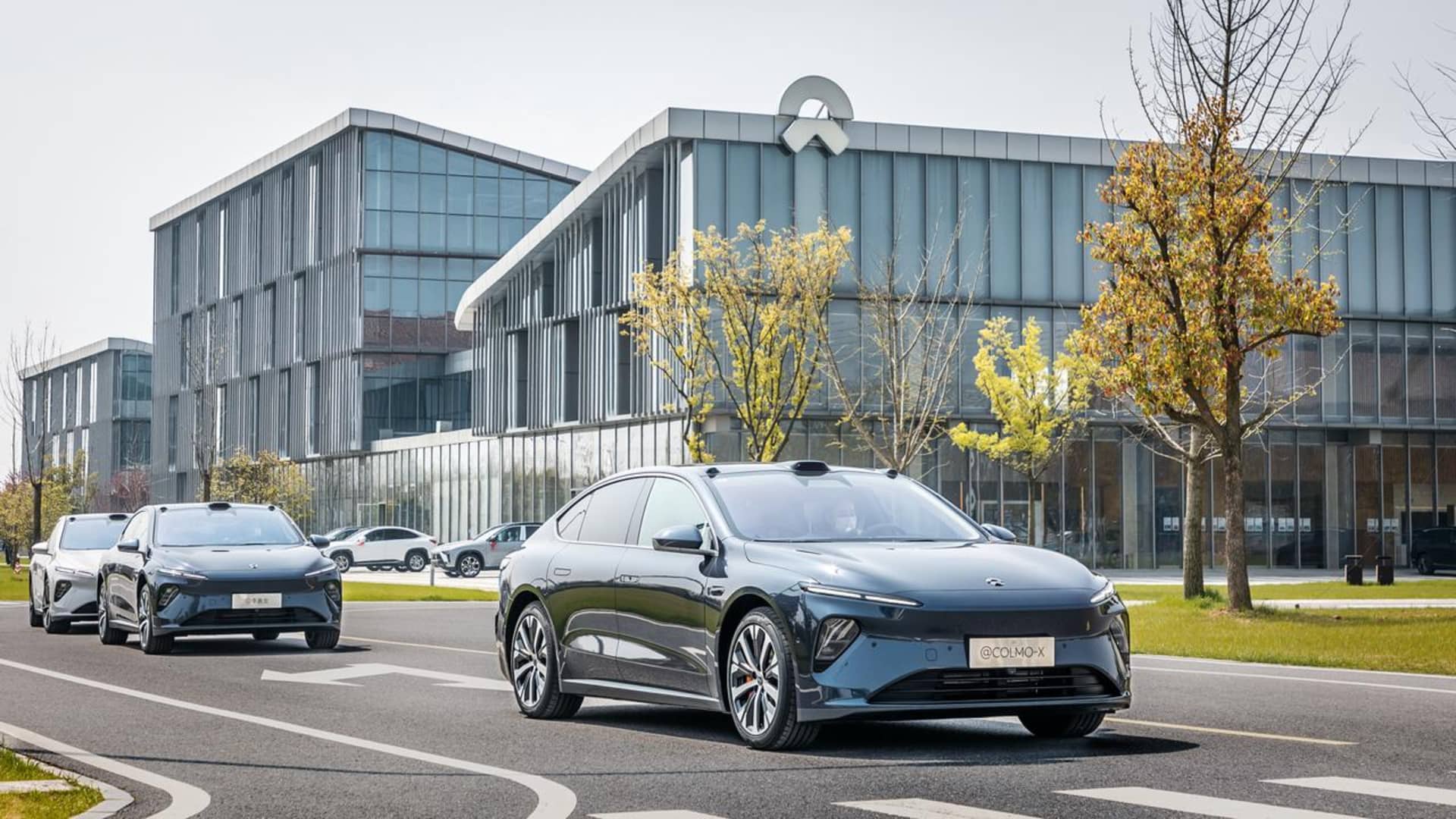
U.S.-traded shares of Chinese electric vehicle makers were among those hit by a dramatic sell-off Monday, as investors soured on non-state-run Chinese companies following a weekend of dramatic political developments in China.
Shares of Li Auto ended the day down 17%, Nio's closed nearly 16% lower, and Xpeng Motors' dropped 12% in trading in New York, while shares of larger BYD closed down over 8%. Other prominent Chinese companies including Alibaba and Tencent Music Entertainment suffered similarly dramatic declines.
The sell-off followed a weekend in which President Xi Jinping appeared poised for an unprecedented third term as China's leader after naming a series of loyalists to the Politburo standing committee, the inner circle of power in China's ruling Communist Party.
Under Xi's leadership, China's government has increased restrictions on speech and movement and tightened regulations on technology companies. Analysts see further constraints ahead, with Bernstein's Mark Schilsky writing in a Monday morning note that Chinese stocks are now "uninvestable."
Xpeng separately on Monday debuted a new version of its advanced driver-assist system, called XNGP. The new system, a direct rival to Tesla's Autopilot, allows for limited hands-free driving in some urban environments as well as on highways.
Read more about electric vehicles from CNBC Pro
"auto" - Google News
October 24, 2022 at 10:49PM
https://ift.tt/wSi1k4W
Nio, BYD and other Chinese EV stocks fell sharply amid sell-off - CNBC
"auto" - Google News
https://ift.tt/3ptk6qw
Shoes Man Tutorial
Pos News Update
Meme Update
Korean Entertainment News
Japan News Update
Monday, October 24, 2022
Nio, BYD and other Chinese EV stocks fell sharply amid sell-off - CNBC

U.S.-traded shares of Chinese electric vehicle makers were among those hit by a dramatic sell-off Monday, as investors soured on non-state-run Chinese companies following a weekend of dramatic political developments in China.
Shares of Li Auto ended the day down 17%, Nio's closed nearly 16% lower, and Xpeng Motors' dropped 12% in trading in New York, while shares of larger BYD closed down over 8%. Other prominent Chinese companies including Alibaba and Tencent Music Entertainment suffered similarly dramatic declines.
The sell-off followed a weekend in which President Xi Jinping appeared poised for an unprecedented third term as China's leader after naming a series of loyalists to the Politburo standing committee, the inner circle of power in China's ruling Communist Party.
Under Xi's leadership, China's government has increased restrictions on speech and movement and tightened regulations on technology companies. Analysts see further constraints ahead, with Bernstein's Mark Schilsky writing in a Monday morning note that Chinese stocks are now "uninvestable."
Xpeng separately on Monday debuted a new version of its advanced driver-assist system, called XNGP. The new system, a direct rival to Tesla's Autopilot, allows for limited hands-free driving in some urban environments as well as on highways.
"auto" - Google News
October 24, 2022 at 10:49PM
https://ift.tt/x8aqswk
Nio, BYD and other Chinese EV stocks fell sharply amid sell-off - CNBC
"auto" - Google News
https://ift.tt/CFrG3SL
Shoes Man Tutorial
Pos News Update
Meme Update
Korean Entertainment News
Japan News Update
Attorney General Josh Shapiro Announces Verdict in Junkyard and Auto Repair Shop Case - Pennsylvania Office of Attorney General
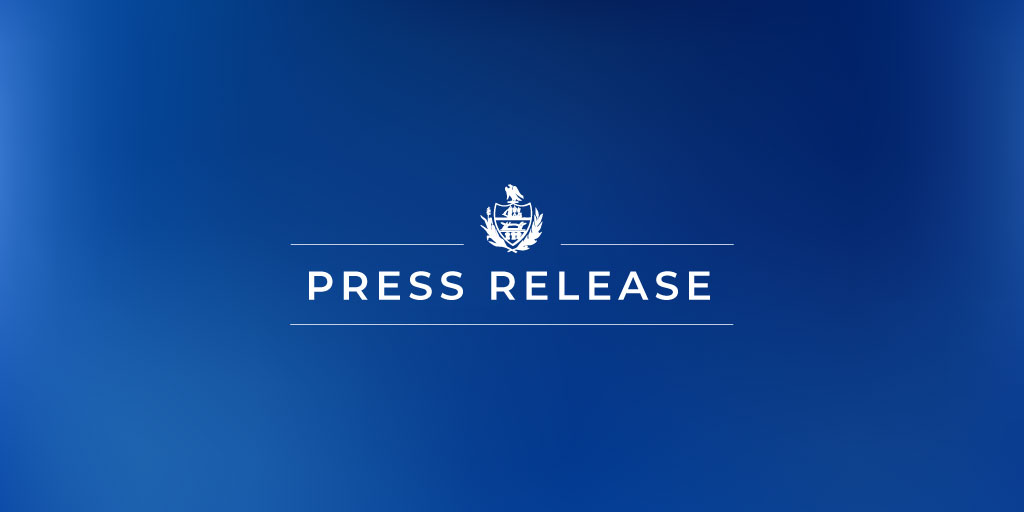
HARRISBURG – Attorney General Josh Shapiro today announced a verdict against junkyard and auto repair shop Progress Auto Salvage, Inc., and owner and operator Emeka K. Oguejiofor, for violating Pennsylvania consumer protection laws. Oguejiofor, along with his business, accepted deposits and advances payments from consumers and failed to do the agreed-upon work.
“This junkyard and its owner scammed people out of their hard earned money by offering rubbish agreements and never delivering the work,” said AG Shapiro. “This verdict should stand as a warning for all potential bad actors — rip off Pennsylvanians and you’ll have to face-off with my office in court.”
The trial was held from October 11 through October 14, 2022. Eight consumers testified against Oguejiofor and his business. One consumer testified that they purchased vehicles from Progress Auto Salvage and had arranged for the company to ship the vehicles abroad. Progress Auto Salvage and Oguejiofor took $92,000.00 of the consumer’s money and failed to obtain the paid-for vehicles.
Another consumer in York County testified that he purchased a frame for his truck and agreed to have Progress Auto Salvage install the part in February 2019. The installation dragged out for years, with Progress Auto Salvage giving many excuses as to why the installation had been delayed. In March 2022, the consumer voluntarily picked up his vehicle and noticed that, not only was the part never installed, but the Progress Auto Salvage had also caused substantial damage to the truck and removed the catalytic converter.
Today’s verdict awards $106,044 in restitution for eight consumers and permanently prohibits Progress Auto Salvage and Oguejiofor from holding a junkyard and automotive dismantler and recycle license.
The lawsuit was filed and litigated in York County Court of Common Pleas by Deputy Attorney General Merna Hoffman, who was assisted in the case by Senior Civil Investigator Jessica Nelson.
# # #
"auto" - Google News
October 24, 2022 at 11:05PM
https://ift.tt/Xhm4R1a
Attorney General Josh Shapiro Announces Verdict in Junkyard and Auto Repair Shop Case - Pennsylvania Office of Attorney General
"auto" - Google News
https://ift.tt/hMXOTW4
Shoes Man Tutorial
Pos News Update
Meme Update
Korean Entertainment News
Japan News Update
The auto industry's $75B bet on autonomy is not paying off - Automotive News Europe

Autonomous vehicle companies and suppliers have collectively spent about $75 billion developing self-driving technology, with scant sign of meaningful revenue emerging from AV services after all that investment.
This has spelled disaster for Aurora Innovation, TuSimple Holdings and Embark Technology, whose shares have each plunged at least 80 percent this year.
It’s no wonder Intel just slashed the targeted valuation for its autonomous-driving business Mobileye to about $16 billion, a fraction of the more than $50 billion it reportedly had in mind 10 months ago.
Cruise, owned by General Motors, raised money at a roughly $30 billion valuation early last year.
In March, GM bought out SoftBank Vision Fund at a price implying the venture was worth around $19 billion.
This is what happens when long-gestating new technology meets the short patience of public markets and harsh reality of rising interest rates.
Many of these companies raised tens of billions of dollars long before their technology was proven or their businesses came close to being self-sustaining.
The hype of the last decade or so and crash of late is calling into question whether self-driving cars will ever work.
Anthony Levandowski, one of Google’s early autonomy pioneers, who left for Uber Technologies and was later convicted for stealing trade secrets, now runs a startup developing autonomous trucks for industrial sites.
In a Businessweek cover story this month, he argued that less-complex use cases will be the way forward for the foreseeable future.
Morgan Stanley’s Adam Jonas, who seven years ago ascribed massive value to a Tesla mobility service that is still nowhere to be found, said in a note recently that autonomy could be a 10- or 20-year proposition.
Companies in the space are now being forced to contemplate drastic measures. Aurora CEO Chris Urmson sent out an internal memo in September raising the prospect of cost cuts, taking the company private, spinning off assets or even trying to sell the company to Apple or Microsoft.
Others have seen high-level turnover.
GM CEO Mary Barra dismissed Cruise counterpart Dan Ammann late last year. TuSimple replaced founder and CEO Cheng Lu in March, and its general counsel James Mullen resigned in September.
Alphabet-owned Waymo lost its chief product officer Dan Chu last month to 23andMe.
While executives and investors alike are in some cases heading for the exits, well-capitalized companies in the space are plowing ahead into new markets and projects.
Cruise plans to replicate its San Francisco robotaxi service in Phoenix and Austin, Texas.
Waymo will start offering rides in Los Angeles and also has been hauling beer between Dallas and Houston.
Startup Kodiak Robotics raised $30 million in private capital this week and ran its freight trucks 8,000 miles (12,875 km) from Texas to Florida.
While there was a test driver at the wheel, the human ceded to the robot 94 percent of the time, Kodiak CEO and founder Don Burnette told me in an interview. The company is starting to transport furniture for Ikea.
I asked Burnette if Kodiak will be ready to ditch the safety driver anytime soon.
“We are pretty close,” he said. “It seems like we always say this. It’s a couple years out.”
It may take even longer, but the market getting the timing of autonomy wrong does not mean it will never work. The lesson is that technology as radical as robotic driving was always better off in the incubators of daring venture capitalists, not the portfolios of trigger-happy stock traders.
"auto" - Google News
October 24, 2022 at 04:47PM
https://ift.tt/Y2LO4M6
The auto industry's $75B bet on autonomy is not paying off - Automotive News Europe
"auto" - Google News
https://ift.tt/hMXOTW4
Shoes Man Tutorial
Pos News Update
Meme Update
Korean Entertainment News
Japan News Update
Sunday, October 23, 2022
Third-Party Litigation Funding and Its Impact on Commercial Auto — Part Two - Workers Comp Forum
Due to the rapid growth of TPLFs and their increased involvement in litigation, cases often take a year longer to resolve than they would if a TPLF was not involved in the case.
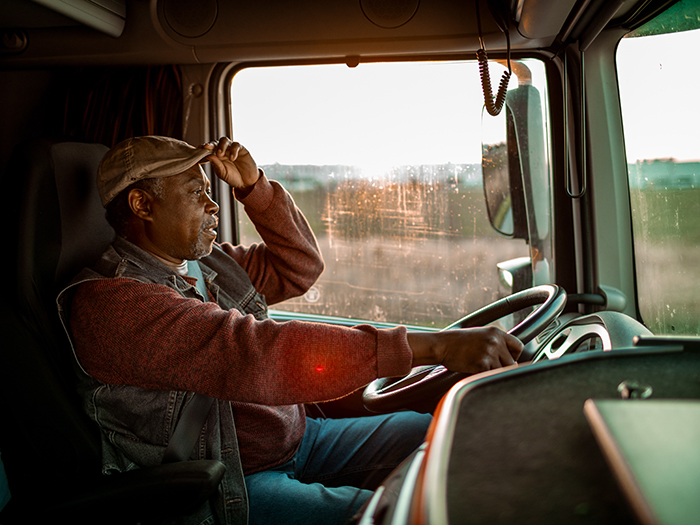
This is the second part of a two-part feature on the commercial auto markets that was produced by actuaries with Milliman. Part one can be found here.
The TPLF Impact on the Bottom Line
According to Bloomberg, as of 2022, the TPLF industry is estimated to be worth approximately $39 billion worldwide. TPLFs such as Burford Capital are publicly traded, and college endowments have even taken shares in TPLFs.
Thus, TPLFs have “gone mainstream,” and there is no indication that the TPLF industry is slowing down.
While there are risks inherent in litigation funding, according to a report by Swiss Re, internal rates of return on litigation funds are up 25% in recent years. Further, despite the negative impacts of the pandemic, roughly $2.5 billion was invested into TPLFs in 2020, and investments grew by 16% in 2021.
TPLFs are so prevalent today that they often advocate in front of legislature and bar organizations and now have their own trade lobby, the American Legal Finance Association (ALFA).
Due to the rapid growth of TPLFs and their increased involvement in litigation, cases often take a year longer to resolve than they would if a TPLF was not involved in the case. But the additional time spent litigating the case is not necessarily producing a benefit to funded parties (i.e., higher recoveries for the plaintiffs).
One reason is that litigants who engage TPLFs usually see a return of less than half of the award or settlement amount.
Further, TPLFs appear to cause an increase in larger claims and thus are reducing insurability for companies. This has been observed in the commercial auto market where some insureds are choosing to obtain lower limits due to increased premium.
The simple addition of another party in litigation with decision-making power over a settlement increases the likelihood that a case will not settle, especially early in litigation.
For example, a plaintiff’s attorney on contingency might want to put minimal effort into a case in order to limit costs and maximize recovery, but if a TPLF is paying the bills, there is no such pressure for an early settlement.
As such, plaintiffs can now prolong litigation, which leads to additional costs and larger awards if the case gets past dispositive motions and close to a jury. Ultimately, the insurers may be forced to pay out higher claims or increased defense costs to defend a case longer.
The issues of increased claims and defense costs raise an interesting point of how policy limits may not cover these increased awards. While many large policyholders also obtain excess coverage, it remains to be seen whether even excess coverage will be sufficient.
And that lack of coverage can be exploited by TPLFs via the threat of post-judgment bad faith litigation to demand a full policy-limits settlement.
However, as the claims increase in cost, so do insurance premiums, and therefore policyholders are forced to bear the brunt of the cost. TPLFs therefore have a significant effect on how risks are underwritten in insurance policies. Insurers must now adjust to the presence of TPLFs, and this will require them to take into account the increased potential for large jury awards when assuming liability risks.
This also impacts reinsurance rates and the willingness of reinsurers to get involved in certain lines of business.
The commercial auto industry has noticed these premium increases. An ATRI study found that insurance premium costs per mile have increased by 47% over the last decade.
While not solely attributed to TPLFs, the premium increases continue to cut into transportation margins and impact the cost to move consumer goods, which ultimately creates an impact that extends beyond the courtroom and an insurer’s bottom line.
State of the Trucking Industry
American Trucking Associations (ATA) estimates that there is a growing shortage of truck drivers available in the market. They estimate that the shortage, as of 2021, was 80,000 drivers and that this number could climb to over 160,000 drivers by 2030 if the proper interventions are not taken.
There are numerous causes for this shortage, including such items as a high average age of current drivers, an inability of would-be drivers to pass drug tests (especially in states where marijuana is legal but still not allowed federally), and difficulty for drivers to spend extended lengths of time away from home.
Regardless of the cause for the shortage, it has created an environment of high driver turnover, given a multitude of alternate job options, and increased miles driven per driver.
It is also increasingly difficult for trucking companies to find and retain high-quality drivers, perhaps requiring fleets to settle for less experienced drivers.
The demand for trucking and the lack of drivers puts additional pressure on delivery timing, creating a thinner margin for error and requiring drivers to operate under tighter timelines.
Plaintiff attorneys are aware of the current environment and can build some of these points into their arguments to suggest that a trucking company should be held responsible.
For instance, it may be easier to say that the trucking company hired an underqualified driver or that the driver involved in the accident was overworked or undertrained. This paints the picture that trucking companies are irresponsible and not focused on safety, which in turn has the potential to lead to increased award sums.
Increasing Severity and Nuclear Verdicts
Figure 4 shows the average gross severity per reported claim within the first two years of the accident occurring for the 40 largest commercial auto writers as calculated from a composite of their Schedule P results.
As can be seen in Figure 4, the severity of commercial auto reported claims has increased from around $5,250 in 2005 to nearly $9,900 in 2020.
Corresponding to the increase in severity since 2005, the commercial auto industry is seeing an increase in the number of exceptionally large claims.
For example, in Tomasa Cuevas, Alejandro Cuevas, and Maritza Cuevas v. Rai Transport, Inc., et al, a tractor-trailer ran a red light and caused an accident. In this instance, both the driver of the tractor-trailer as well as the owner of the truck were sued, and in 2019 the jury awarded over $70 million for both past and future pain and suffering.
In another 2019 case, Rebecca Lipton, Ivan Lipton, and Eva Lipton v. First Student, Inc., et al, which involved an accident between a school bus and a car. Both the school bus driver and the driver of the car were sued. They were both found to be negligent, and the jury awarded $36.5 million.
In another 2019 case, a jury awarded damages of $30 million when a driver making a U-turn onto a highway caused the operator of an oncoming vehicle to swerve off of the roadway into a parked tractor-trailer.
The parents of the deceased swerving driver sued the driver of the U-turning vehicle, the owner of the business from which the U-turning vehicle had just departed, the driver of the tractor-trailer, and the owner of the tractor-trailer.
These lawsuits are just a few examples of many recent nuclear verdict lawsuits. Nuclear verdicts are typically identified as cases that award $10 million dollars or more.
According to research done by the American Transportation Research Institute (ATRI), in 2006 there were only four suits in the ATRI Litigation Database with awards exceeding $1 million. However, by 2013 over 70 suits had verdicts that exceeded $1 million.
The number of large cases subsequently decreased to a little over 30 suits by 2019. ATRI’s database shows a mean claim size of $3.2 million for cases settled between 2006 and 2019. The standard deviation of awards listed in the database is roughly $7.2 million, indicating that there is significant variability within the data.
In many instances, nuclear verdicts are awarded in cases involving one or more fatalities. Figure 5 shows the fatality rate per miles traveled for large trucks compared to all vehicles.
It is worth noting that the rate of fatalities in truck crashes was lower than the total vehicle rate from 2008 to 2012. The fatality rates started to become similar around 2013, which is also when commercial auto loss ratios started to rise higher than the P&C industry.
Another interesting observation is that large truck fatality rates decreased in both periods of economic downturn (2009 and 2020); however, they represented different driving environments.
The global financial crisis resulted in significant decreases in truck miles traveled as the demand for goods slowed.
However, the pandemic saw a slight increase in truck miles traveled, though the decreased fatality rates in 2020 may have been due to fewer overall vehicles being on the road during the early months of the pandemic.
Thus, the large increase in the overall fatality rate in 2020 has been largely attributed to riskier driving behaviors and higher speeds that were more prevalent due to less road congestion. This phenomenon appears to have primarily impacted personal vehicles as the truck fatality rate moved in the opposite direction in 2020.
Worsening Reinsurance Results
Figure 6 shows the net and ceded ultimate loss and DCCE ratios (hereafter referred to as loss ratios) by accident year averaged across the 40 largest commercial auto writers as calculated from a composite of their Schedule P results.
The ceded loss ratios display the results of the reinsurers of commercial auto and capture the impact of an increase in the number of large claims.
As can be seen, both the net and ceded loss ratios have been on an upward trajectory since the global financial crisis with some improvements in recent years due in part to rate increases taking effect.

Figure 6: Commercial Auto Liability Ultimate Loss Ratios for Ceded and Net Business. Credit: Milliman
Perhaps the most interesting observation in Figure 6 is the transition from ceded ultimate loss ratios being historically smaller than net ultimate loss ratios to ceded ultimate loss ratios beginning to exceed net ultimate loss ratios in 2010, with over a 7% difference observed in every accident year after 2013.
Additionally, the reinsurers’ initial estimates of ultimate losses have generally been too low.
If these trends of high ceded loss ratios and consistent adverse development continue to persist, it is likely that commercial auto reinsurance rates will continue to rise.
The prevalence of higher ceded ultimate loss ratios is another indication that average loss amounts are increasing (assuming primary retention levels are remaining the same or increasing).
Solutions to Mitigate the Adverse Trends
1) TPLF proposed regulations
With nothing stopping the avalanche of litigation funding that is increasing congestion in the court system and driving inefficiencies, legislation may be necessary to limit attorney fees, prevent kickbacks and restrict TPLFs from involvement in certain underlying litigations.
Notably, New York state introduced a bill in 2021 that, if approved, would regulate TPLFs by placing a cap on the interest rate a TPLF can assess, preventing plaintiffs’ attorneys from collecting a referral fee, restricting TPLFs from having any control over the litigation, and protecting all communications under the attorney-client and work-product doctrines, among other proposed actions.
Additionally, the disclosure of the existence of litigation funders can be important to understand all the factors impacting a potential settlement. However, the large majority of U.S. jurisdictions do not require disclosure of TPLFs.
That may be changing as some courts such as the U.S. District Court of New Jersey have held that TPLF agreements must be disclosed during litigation. A federal court in California held similarly, while Wisconsin and West Virginia have also both passed legislation that requires disclosure.
Furthermore, requiring TPLFs to have more skin in the game (i.e., creating a potential downside) could also slow down the unfettered growth of TPLFs.
In any litigation, there is the possibility that a plaintiff is required to pay an award of attorneys’ fees and costs or potential damages for a counterclaim if a defendant is successful.
Thus far, TPLFs have mostly enjoyed only the upside after their initial investments and have not been responsible for paying these potential plaintiff fees. However, some defendants who seek recovery against a plaintiff who cannot pay may have an argument that the TPLF should be held responsible for any award.
2) Improved ratemaking/underwriting
Since long-haul trucking has been identified as one of the worst performing commercial auto segments, carriers have looked for ways to directly address these exposures.
Some carriers have looked to underwrite other vehicle types more aggressively or even move away from writing trucking business altogether. Other companies are looking for more innovative approaches to ratemaking to deviate from their competitors and better segment the risk.
Examples of this include building proprietary models that generate risk scores or underwriting tiers, developing enhanced zone rating or territory plans, and implementing usage-based insurance programs, typically utilizing mileage as an exposure base.
Telematics has also become more pervasive in the industry, which has allowed carriers to directly understand the behavior of individual drivers, as opposed to proxying it with fleet-level variables. Available telematics products range from more “traditional” telematics devices that collect driving maneuvers and location to camera systems that monitor a driver’s alertness or level of distraction.
The benefit of commercial telematics goes beyond insurance ratemaking applications. Many devices also come with fleet management tools that enable insureds to better train drivers and keep the safest drivers in their fleets.
Data and recorded video can also help reconstruct the conditions surrounding a crash, which could prove that a driver is not at fault or help insurers make better decisions about settlement strategies with the additional information.
While telematics programs have brought improvements to the commercial auto industry, there are still some hurdles to clear. High driver turnover can make it difficult to build and apply models at the individual driver level.
Also, some fleet managers are still hesitant to implement these systems, citing concerns over cost and increased turnover due to drivers not wanting to be monitored. Despite these hurdles it seems that telematics may be one of the clear solutions to better segment risk and improve commercial auto loss experience.
In Conclusion
In the absence of regulation of TPLFs, a reduction in inflation or an inflow of drivers to address the trucker shortage, we believe that the commercial auto market will continue to present challenges to insurance carriers.
To overcome these obstacles, insurance carriers will need to up their game with more sophisticated pricing models that better align rates with the corresponding risk, and with more enhanced risk management tools that help assess and train truck drivers. &
Brian is a Principal and Consulting Actuary for Milliman Inc., where his areas of expertise are property and casualty insurance. Christopher Fredericks is a partner at Mendes & Mount LLP. Drew is an Associate Actuary for Milliman Inc. with expertise in pricing, reserving and predictive analytics for various property and casualty exposures. Katie is a Consulting Actuary for Milliman Inc. with expertise in ratemaking, predictive analytics and loss reserve analysis.
"auto" - Google News
October 23, 2022 at 10:14PM
https://ift.tt/lQb9aCu
Third-Party Litigation Funding and Its Impact on Commercial Auto — Part Two - Workers Comp Forum
"auto" - Google News
https://ift.tt/yL9RrsY
Shoes Man Tutorial
Pos News Update
Meme Update
Korean Entertainment News
Japan News Update
Featured Post
18-year-old charged for auto burglaries, guns - Yahoo! Voices
rest.indah.link MEMPHIS, Tenn. — An 18-year-old has been charged in a string of aggravated assaults and auto burglaries across Shelby Coun...

Popular Posts
-
rest.indah.link Last year, Apple launched the iPhone SE 2020 model in the first half of the year and four 5G version iPhone 12 series flags...
-
rest.indah.link Two girls operate the Giant Joystick at LABoral Art and Industrial Creation Centre, March 31, 2007 in Asturias, Spain. ...
-
rest.indah.link DENVER — A surveillance camera mounted above the garage didn't deter a brazen car thief from stealing Erika Gebhardt...

